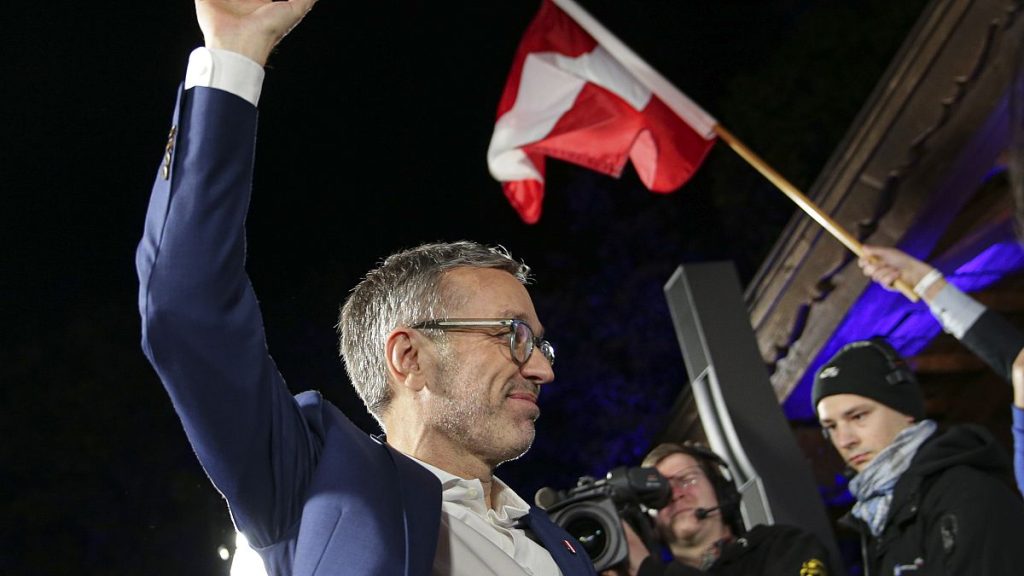Austria recently saw the far-right Freedom Party (FPÖ) secure victory in their general election, potentially putting them in power and making Austria the latest EU member state to have a far-right party in a position of influence. The FPÖ, with its anti-migration and pro-Kremlin stance, was founded by former Nazis after World War II and has never before won a general election. The party’s victory may have been influenced by a strong anti-migration discourse, a trend that has been seen in other European countries as well. While the FPÖ is not yet able to govern alone and would need to form coalitions, their success could still impact the EU as a whole, as the far right has been gaining ground across Europe in recent years.
The far right has been making significant electoral gains in several EU member states, with Hungary being the only country currently with a radical right party in power. However, far-right parties are part of coalition governments in Italy, The Netherlands, Finland, Czechia, and Croatia. With Austria potentially following suit, it will be important to see how the FPÖ navigates governing alongside other parties. This will have implications for the European level, particularly in terms of Austria’s position in European decision-making bodies and its ability to influence EU policies. The rise of the far right is not limited to Austria, as other countries like France and Germany have also seen similar trends with parties like Rassemblement National and Alternative for Germany gaining ground.
The proliferation of far-right parties across Europe is part of a broader trend that could challenge the European Commission and sway policy debates in the European Parliament. While these parties may lack policy expertise, their presence could lead to a more polarized parliament and could influence the policy agenda in the long run. However, immediate changes are unlikely to be seen as EU procedures require building various majorities to make decisions. The European project is expected to continue as usual, but the rise of the far right could shift the way debates are conducted and policies are formulated within the EU.
At the European level, the FPÖ’s victory is expected to add weight to the calls for stricter migration policies and could result in delays in implementing initiatives like the Green Deal. Far-right forces in Europe are divided in their stance towards Russia, which could lead to differing views on foreign policy and international relations within the EU. Despite the potential influence of the far right, the European project is expected to remain on its current trajectory, with policies being formulated through the ordinary legislative procedure. While the rise of the far right may lead to a more polarized European Parliament, the impact on policy-making is likely to be gradual rather than immediate. Moving forward, it will be essential for EU leaders to address the underlying reasons for the shift to the right and determine how to navigate this changing political landscape within the bloc.















